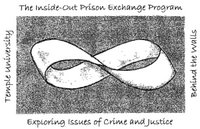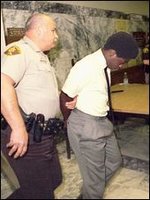
this post is taken directly from the american society of criminology's division on women and crime's newsletter. you can access the full newsletter at: http://www.criminology.fsu.edu/dwc/newsletter/. thanks to jeanne flavin for putting together such an interesting column on public criminology and allowing us to share it on our blog.
Ask A Tenured Professor
PUBLIC CRIMINOLOGY: "How do we publish, while others perish?”
This column explores the issue of public criminology, that is, criminology as a way of writing and engaging intellectually with the public. I asked how those of us who work in universities might “do” public criminology, and asked practitioners/policymakers what works and does not work in terms of undertaking partnerships with people inside academe. I am very grateful to Miki Akimoto, Becky Block, Michelle Inderbitzin, Kelly Moult, and Wendy Perkins for their frank and honest responses, and thank them for moving the conversation along in important ways!
If there is sufficient interest, I’d like to continue the conversation about public criminology in a future column (though I’d need some feedback on what kind of discussion would be most beneficial!). As always, if you have ideas or questions for future columns, please send them to jflavin@fordham.edu.
Thank you!
Jeanne Flavin
Answer #1. What works? The Working Group on Research Collaboration between Practitioners and Academics has had four ASC workshops where papers were presented, and has had lively email discussions on this issue. We are especially concerned about research collaboration from the practitioner's point of view. If you go to the CWHRS Forum, at http://www.icjia.state.il.us/cwhrs/, and click on "Collaboration," you will see the papers presented at our last two meetings. You will also be able to click on "contract and protocol for agencies working with researchers." This is a tool for practitioners [editor’s note: co-authored by Jo Belknap, Susan Ransbottom, Jenn Roark] to use to judge the integrity and professional skills of academics who want to work with them. I believe that Jackie Campbell also has such a tool, but I haven't been able to get a copy so far. Our agency has developed a contract for research collaboration, in which the outside researcher agrees to maintain confidentiality, sets out a timeline and a list of products, etc. In addition, you might look at a couple of CWHRS publications:
Block, Carolyn Rebecca, Barbara Engel, Sara Naureckas & Kimberly A. Riordan (1999). The Chicago Women’s Health Risk Study: Lessons in Collaboration . Violence Against Women , Vol. 5 No. 10, 1158-1177.
Block, Carolyn Rebecca, Barbara Engel, Sara Naureckas & Kimberly A. Riordan (1999). Collaboration in the Chicago Women’s Health Risk Study. Research Brief: May, 1999. Chicago: Illinois Criminal Justice Information Authority. (Has several good citations.) Re: larger principles of public criminology: …The single most important principle I can think of at the moment is to support data integrity. The foundation of almost everything we do is good, reliable, clearly defined data. Data access is power. Therefore, supporting data integrity and accessibility supports democratic decision-making. Too often, however, academics seem to think of those who are responsible for maintaining data integrity as the "data fairy." Instead, academics should partner with people who collect and maintain data, to increase data quality and accessibility. Specifically, when data integrity is threatened, academics should speak up. When an analyst is fired or a research agency is "lined out" of the budget because they refuse to cook the data, academics should scream. This has been happening a lot lately, and all I hear is a deafening silence. Also, academics should thoroughly document and archive any data that they collect - so that studies can be replicated and so that people in the community can use the data as a basis for decisions.
Answer #2: Since, I am both a practitioner and an academic, I have seen both sides of the coin. Practitioners tend to think academics are nothing but pencil-pushers, and academics tend to think practitioners are do-gooders with no intelligence. Of course these feelings are not universal among practitioners and academics but they are prevalent enough to cause problems. The key is for each side to appreciate what the other side has to offer. Practitioners can offer personal insight into things that academics may never experience, thus making their research more full and complete. In addition, sometimes practitioner experience can 'back up' the research and validate it in the eyes of other practitioners. Academics can offer practitioners (hopefully) methodologically sound program evaluations and empirical support for their on-the-job experiences, thus validating the things they have done/seen and lending credibility to them in the field. That said, both parties must come to the table prepared to work together in such a way that everyone walks away feeling as if their contributions are valuable. Most of the academics I am associated with value practitioners and work with them, however practitioners are not always open to working with academics. I think academia has to overcome that pencil-pusher stigma. I do think that one way to do that is for all people in academia to spend time in the field getting their hands dirty. I know not everyone would agree with me, but if we want to build partnerships then first-hand knowledge of what the practitioners experience is a must so we can come to the table with more than our SPSS and our wits.
Answer #3: I believe that in South Africa [writer is senior researcher at a university] our location as university units paralyze our efforts to act in pressurizing government to act in relation to legislative reform proposals that we set out on the basis of research conducted with criminal justice agencies. Our task is made even more difficult by the fact that we are overwhelmingly donor funded (e.g Soros, Mott, Rowntree etc), which I think has led to the development of young researchers who overwhelmingly research what is funded, rather than have the space to be critically distant, and develop a particular interest and expertise.
Answer #4. I mulled over the quite interesting and very relevant questions that you pose in your query for your column. As you pointed out in our conversation, academe has/have (is it a collective noun?) a large number of resources and vast knowledge that could be useful to criminal justice (and other social services) practitioners, but the connections aren't always made. So, how do you go about bridging that gap?
As you know, much of my career has been in this weird twilight space that exists somewhere between academia and straight-out practice. This makes me just knowledgeable enough about both areas to be dangerous. . . . It seems to me, if you are addressing your responses to academics, that the first thing I would say is, "Beware of arrogance." Too often, you see outside experts coming into practitioner systems with the assumption that because they have XX years of study and YY letters behind their names, that they have The Answer, or worse yet, They Will Find The Answer For You, little practitioner. If you are an academic wishing to partner with and support a public system, remember that you are only one part of the equation. You may know every theory published since 1807, but it is highly unlikely that you have spent time dealing with the messy, nuanced and difficult realties that families in crisis face on a daily basis. Your theories about self-actualization mean little to a mother who is sitting there with $27 in her checking account trying to decide between keeping the heat on and buying groceries. You will need to take some time to get to know the realities of the system you are working with.Which leads me to my second piece of advice, "Take time to understand the culture and system you're trying to partner with." In many public systems, academics are regarded with a great deal of wariness. Many criminal justice, child welfare and other social service workers have been involved in studies that a) took a lot of time for interviews, survey completion, record keeping, etc., and then b) never resulted in any measurable or real improvements in their working lives.* Worst still, many of them have found their work written up as somehow inadequate to the task at hand, regardless of how hard they were working in usually drastically under-resourced situations. These types of reports are often written by researchers or academics who haven't taken the time to fully understand the entire system they are looking at, and are trying to apply ideal/utopian notions to systems that are sometimes operating with 18th century management techniques and 19th century technology.*a subcomponent to this response (or perhaps a corollary) is communicate, communicate, communicate. Then communicate again. Make sure that people who are writing about get to see drafts of things so they can see if they are accurate and/or reflect their understanding. Depending on the situation, you don't have to give folks veto power over documents, but you need to be respectful about sharing information - particularly with the folks who have contributed to your content.Thirdly, "This will take more time and energy than you think." Any good partnership/collaboration takes a great deal of time to establish and maintain. The people involved really matter, and they have to become comfortable with each other before they can move toward that all important feeling of trust. Moreover, you need to take the time at the outset to make sure you are really all on the same page. If an academic approaches a system because she thinks they want to measure X, but the reality is that it's really Y and Z that are important, everyone winds up frustrated at the end of the day. VERY importantly, you must also take the time to make sure that when you say you're measuring X, the practitioners understand that you mean X and aren't hearing Y because of differences in jargon or terminology.Be humble. Folks out on the front lines of our public safety and social services systems have it tough. They deal with life's most difficult circumstances on a daily basis, and literally make life and death decisions. Their field knowledge is often incredibly deep and insightful. LISTEN to them. Recognize at the end of the day that you may well learn more from them than they from you.
Editor’s note: Arguably the best piece of advice I have ever been given is to write plainly and without jargon. Two of my favorite “readers” work for non-profits (one of whom is Miki Akimoto, who contributed to this column). I spent nearly a year at an agency, during which time I wrote three articles that somehow profiled or alluded to their work. I showed a draft of one piece it to my colleague for her feedback.
Judy: Jeanne, when you talk about someone getting out of prison and their ‘mutually interactive networks of support,’ what is it exactly that you mean?
Me: You know, people help each other out.
Judy: Ummm, then why don’t you just say that?!
Also, I need to come to grips with my own ignorance if I’m really to learn anything (which I think is hard for an academic to do!). Recently, for example, I thought I was holding my own in a discussion of the Adoption and Safe Families Act when an child protective services administrator said something in passing that I didn’t follow but everyone else (ACS workers) clearly did. Rather than ask for clarification, I just kept nodding. And then I thought to myself, “Jeanne, that seemed a pretty important and basic point; you’d best ask even if you look stupid.” So I asked for clarification, and was so glad I did because otherwise that “pearl of common knowledge” would have been lost to me.
1 As I understand it, if a child is in kinship care and kin does not formally assume custody – which many families do not wish to do out of respect for the mother, no matter how messed up she might be – than the ASFA/involuntary termination clock still ticks!

















 chris and i have both written recently about women
chris and i have both written recently about women 





